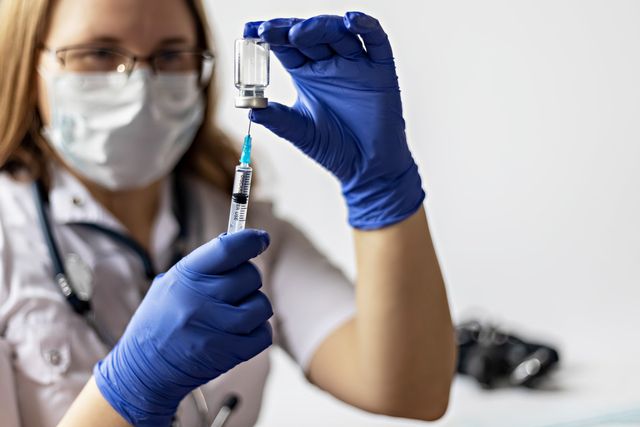Health authorities advocate for the integration of polio eradication and routine immunisation programmes to enhance efficiency and combat vaccine-preventable diseases
Pakistan stands on the brink of spending over $186.45 million (approximately PKR 52.2 billion) this year solely on polio eradication. However, former health ministers and experts are raising alarms that the nation’s overall immunisation efforts, including the Expanded Programme on Immunisation (EPI), are severely lacking due to the disintegration between these crucial health initiatives.
With a combined annual budget of approximately $350 million (PKR 98 billion) allocated for both polio eradication and routine immunisation, health professionals argue that the failure to unify these programmes is leading to wasted resources and hampering progress in combating diseases that can be prevented by vaccines. Despite significant investments, polio continues to be endemic in Pakistan, putting countless children at risk.
On World Polio Day 2024, prominent health figures—including former Special Assistant to the Prime Minister on Health, Dr. Faisal Sultan, and former SAPM Dr. Zafar Mirza—joined caretaker Punjab Health Minister Prof. Javed Akram and other national and international experts in calling for immediate integration of the polio programme with the EPI. This strategic move aims to enhance operational efficiency and ensure that substantial financial investments translate into tangible health outcomes.
Dr. Faisal Sultan emphasised that such integration could significantly bolster Pakistan’s efforts. Meanwhile, Dr. Zafar Mirza highlighted the critical need for equity across provinces. “Separately, they will not succeed. We must address inequities between provinces and even within them, particularly in Balochistan and Khyber Pakhtunkhwa, where over 80 percent of children are not receiving routine immunisation. Without it, these children will have weakened immunity and be vulnerable to polio,” he stated. “A holistic approach is needed to integrate both programmes.”
The financial breakdown of Pakistan’s investment in polio shows that the majority of the $186.45 million is directed towards vaccine procurement from countries like China, Belgium, and Indonesia, alongside operational and communication expenses managed by international partners such as the World Health Organisation (WHO) and UNICEF. However, the funding for routine immunisation against 12 other vaccine-preventable diseases through the EPI remains significantly lower, with a projected budget of $164 million for 2024.
Despite these substantial investments, deaths and disabilities caused by polio and other preventable diseases continue to rise. Prof. Javed Akram pointed out the unsustainability of duplicating resources in a country already burdened by economic challenges. “Merging the polio and EPI programmes would prevent resource duplication and ensure better governance. Even flu shots, pneumococcal, and Hepatitis B vaccines should come under one umbrella,” he asserted. He also emphasised the need for clear goals, annual targets, and the appointment of professionals to manage these initiatives effectively.
The urgency for integration is underscored by alarming statistics; this year alone, 40 children have contracted the poliovirus, leading to four fatalities attributed to complications. Ayesha Raza Farooq, the Prime Minister’s Focal Person for Polio Eradication, revealed that the virus has spread to 71 districts, posing a grave threat to children across the nation.
Farooq pointed out several challenges hampering eradication efforts, including cross-border virus transmission, the repatriation of unregistered foreigners, and increasing vaccine hesitancy. “In high-risk areas, communities often refuse vaccination, insisting on receiving other government services first, complicating our eradication strategies,” she noted.
The call for integration has gained traction among international health authorities as well. A representative from an anonymous donor organisation affirmed, “Pakistan has the infrastructure, financial support, and workforce necessary to eliminate polio, but a more holistic approach is required to tackle the underlying issues related to both polio and other vaccine-preventable diseases.”
The roadmap for eradicating polio aims to interrupt virus transmission by mid-2025, but experts stress that success hinges on merging polio campaigns with enhanced routine immunisation efforts and comprehensive public awareness initiatives. Dr. Nadeem Jan reinforced the necessity of collaboration with law enforcement and media outlets to address vaccine hesitancy and ensure the safety of polio workers operating in high-risk regions.
As World Polio Day 2024 serves as a poignant reminder of global commitments to eradicate polio, Pakistan faces a host of challenges. Nevertheless, experts remain optimistic that with a renewed focus on integrating polio eradication with routine immunisation within a coordinated national strategy, the country can navigate these hurdles and secure a healthier future for its children.
